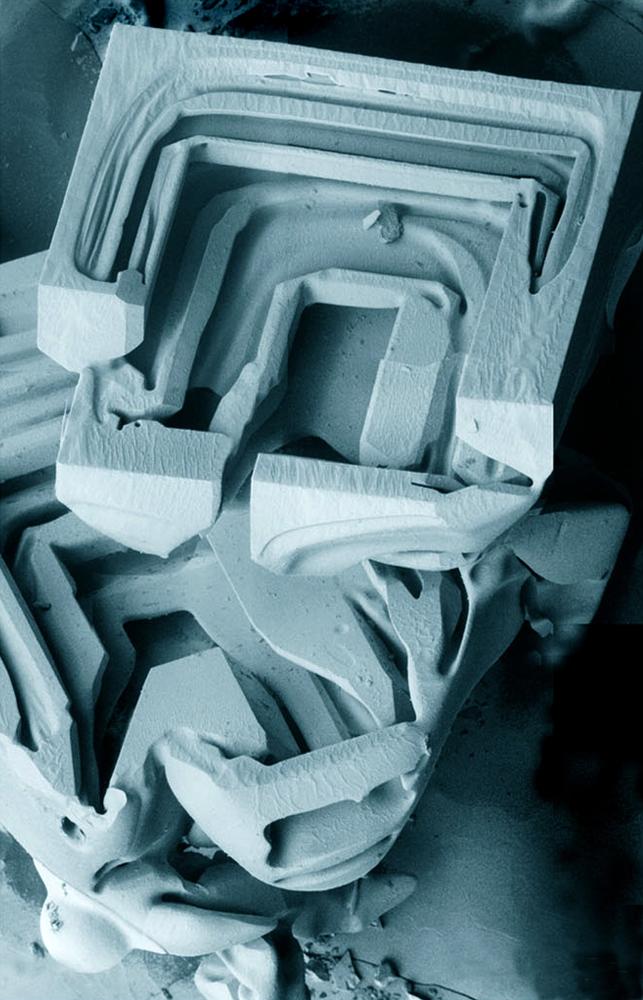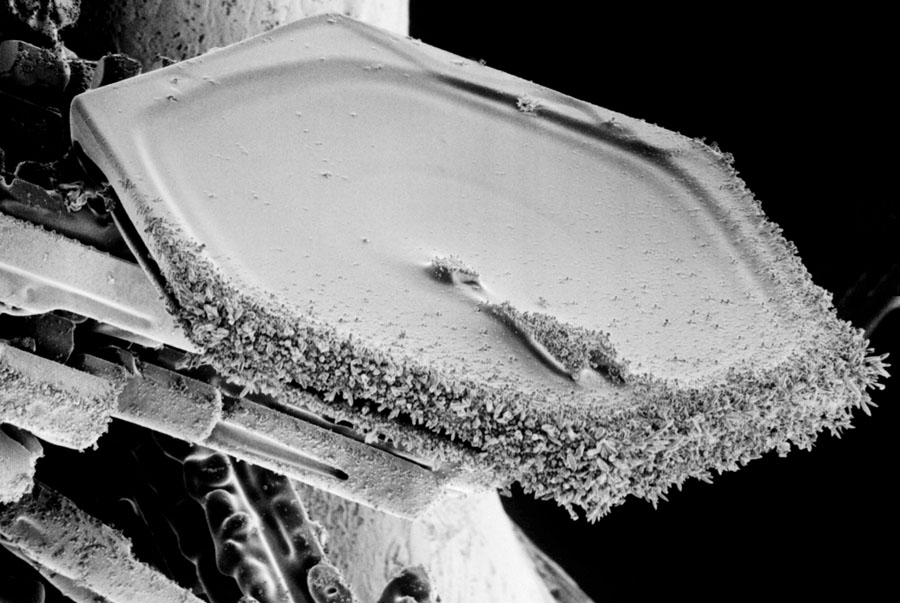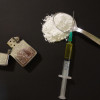Planet Earth Online - Supercooled Water
Interview with
Kat - Now, here's an easy science question: What temperature does water freeze at? You'll probably be forgiven for thinking the first answer that pops into your head - "it's zero degrees. Duh!" But actually, that's not necessarily the case and scientists at the University of Leeds believe that supercooled water may be implicated in the crash landing of the British Airways 777 jet at Heathrow in 2008, when both engines lost their power. Here, Planet Earth podcast presenter Richard Hollingham met Ben Murray in his lab at Leeds for demonstration.
Ben - So we just got a chilled bath. It's at minus 7 degrees C right now and in that chilled bath, I've got some bottles of bog standard mineral water.
 Richard - So we can see on the top that it's minus 7 and you look in - these aren't frozen! That's wrong, isn't it? Because doesn't water freeze at zero?
Richard - So we can see on the top that it's minus 7 and you look in - these aren't frozen! That's wrong, isn't it? Because doesn't water freeze at zero?
Ben - Ice melts at 0 degrees C. Yes, but water does not necessarily freeze at 0 degrees C and this is quite a nice a demonstration of that. Water can exist in what's called a supercooled state, so it can exist below 0 degrees C in a liquid form. In order to turn it into ice, you have to have the right type of particle, the right surface present to catalyse the ice nucleation process or the ice formation process.
Richard - So what are you going to do to it?
Ben - We're just going to take a bottle out and as you can see, it looks like liquid water, it's moving around in the bottle.
Richard - I guess I feel that. Yes, it's definitely cold.
Ben - And now, what I'm going to do is just pour onto this glass dish. There's a little bit of ice in that glass dish which should trigger the crystallisation. Okay, there it goes. So you can now see it's...
Richard - That's amazing. It's turning to slushy ice in almost a pyramid shape as you pour it.
Ben - It fell over!
Richard - Instant ice!
Ben - So the super cold water, as soon as it hits something it can freeze on, it does so, and you can hear it. It's slushing a little bit there, I guess it's going to overflow.
Richard - So there we go. You poured a bottle of water onto a dish and as you poured it, it became ice.
Ben - Here you are. Just to prove there's nothing funny going on, we can just eat a little bit of it...
Richard - Okay. Can I try that? This is not...?
Richard - Yup.
Ben - Just cold.
Richard - It is cold. It's definitely ice. I put rather too much in my mouth then. It's quite a vivid demonstration, it's instant as well. There was no slow freezing process. It was *schwoom*! Done! You've done this many times as an experiment. You study ice and the supercooled water in clouds, but you made the connection between what we've just seen demonstrated here and the plane crash in 2008, when the Boeing 777 crash landed short of the runway of Heathrow.
Ben - I was actually made aware of this issue by a colleague in called John Morris. He has a small company down in Cambridge and he made me aware that it was something to do with ice in the fuel system that apparently caused this fuel blockage, which caused the plane to lose power as it was approaching the runway, which obviously caused it to crash land. In the crash investigation report, the official report on the accident, the engineers implicitly assumed that water droplets below 0 degrees C existed as ice. And then they went on to describe experiments they've done, where they noticed these apparent ice particles became sticky at about minus 8 degrees C. We read this report and we just thought - hang on - first of all, water doesn't freeze at 0 degrees C. Water droplets will exist and stay liquid right down to much lower temperatures. And what's probably happening in a fuel system is that water droplets are hitting surfaces and then freezing when they collide on those surfaces. So we just set about using our existing equipment that we use for atmospheric cloud research to show that water droplets, suspended in jet fuel, are actually supercooled and that's what we demonstrated. In fact, the water droplet suspended in this jet fuel only froze at about minus 36, minus 37 degrees C. So, the jet fuel doesn't catalyse the freezing process.
 Richard - So in jet fuel, you assume then, with planes flying above us now, there is this supercooled water in them?
Richard - So in jet fuel, you assume then, with planes flying above us now, there is this supercooled water in them?
Ben - Yes. I'm obviously not an expert in aviation and jet engine fuel systems, but yes, you would expect at the low temperatures that planes fly at, that some of the water in the fuel system will exist in a supercool state, and then when it collides with surfaces, it can then freeze. I still fly, I don't think this is a major problem. It's only happened a handful of times. But it has happened a handful of times and I think is important to get to the bottom of it.
Kat - That was Ben Murray from the University of Leeds, talking to Richard Hollingham from the Planet Earth podcast.
You can see a video of this experiment at the Planet Earth Online Website here!
- Previous Cancer's Own Immunosuppressants
- Next The Hallmarks of Cancer









Comments
Add a comment